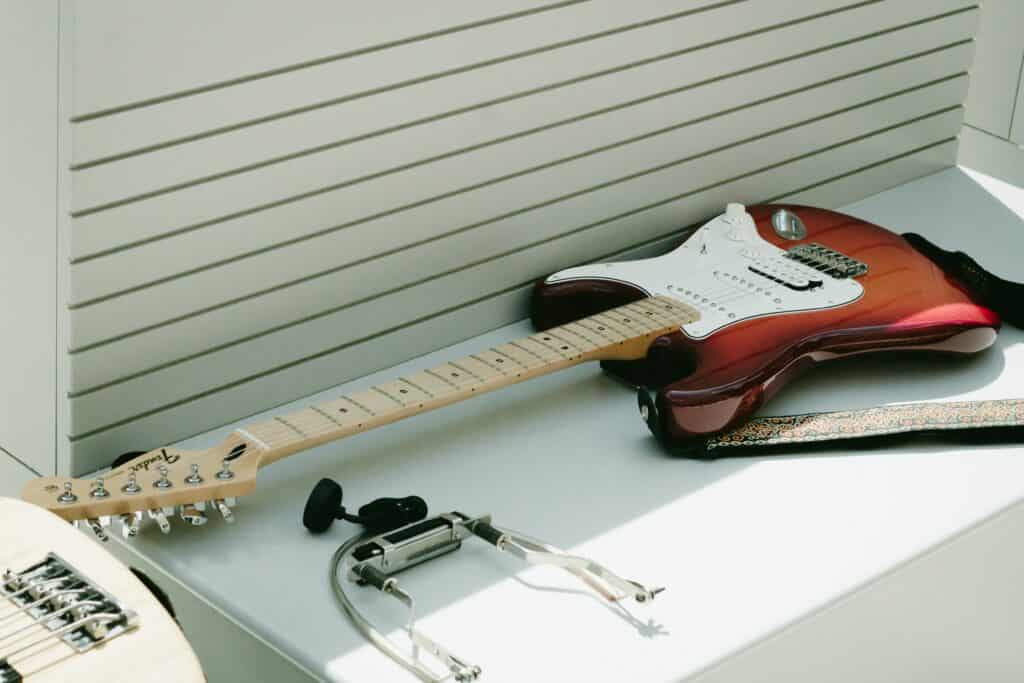
There are many reasons you may have to ship a guitar. If you’re a retailer or supplier, you’ll be shipping regularly. And sometimes, regular guitarists may need to sell a guitar to someone else. When the time comes, you’ll need to know how to properly package and ship a guitar to ensure it gets to its destination in great shape.
So how much exactly does it cost to ship a guitar?
The average guitar shipping within the US costs $100 to $150 and outside the US costs a bit more. If it’s in a gig bag, it can range from $85 to $90. This price is not constant, so it varies between couriers. You’ll have to contact your shipping company for more information.
In the article, we’ll discuss in detail the factors that affect the shipping costs, and how to safely prepare your guitar for shipping.
Factors that Affect the Cost of Guitar Shipping
Below are some factors that affect the cost of shipping a guitar.
The Weight of the Guitar
If you ship stuff regularly, you’ll know that the weight influences the shipping cost. If you ship the guitar in a gig bag, it won’t be as heavy as shipping it in a hardshell case. If you need more info, you can weigh your guitar and use a shipping calculator online to estimate the shipping cost based on weight.
The Distance Between You and the Recipient
If you’re sending the guitar to a place within a state, or a close state, you can expect the cost to be lower. However, international shipping will cost far more.
The Time You Need It To Arrive
Shipping a guitar usually takes two or more days. If you need it to be shipped faster with express delivery, you’ll pay more to the courier.
Insurance
The guitar is a delicate instrument. If any string rips or the item breaks during shipping, insurance can save you. If your guitar has a lot of sentimental value or it’s expensive, you should consider insurance. However, insurance will bump the shipping cost if the shipping company doesn’t normally include it.
How To Prepare Your Guitar for Shipping

Shipping a guitar may sound easy, but there are many things involved. There are precautions you should take before putting the guitar in its case and putting it in a box.
Loosen the Strings
The first thing you should do is loosen your guitar strings to reduce the tension exerted on the neck. Detune the strings about two steps down before you do anything else. If you don’t do this, the neck of the guitar can end up deformed due to the movement and varying weather in transit.
Wrap the Headstock With Bubble Wrap
The headstock is a delicate part of the guitar because it holds the tuners in place. No tuners equal no guitar, so you could arguably say it’s the most vital part of the instrument. Use a bubble wrap to cover the headstock. This will absorb the shock it’ll be subjected to in shipping.
Separate Moving Parts
If you have parts like capos, Allen keys, and tremolo arms, ensure you keep them in a separate compartment and not in the same place as your guitar. If these metal components are brushing up against your guitar during shipping, it’ll reach its final destination with some damage.
Use Padding Between the Strings and Fretboard
This isn’t necessary, but you can’t be too careful. You only need a piece of cloth or newspaper strips. The padding will prevent friction between the strings and fretboard when the road gets bumpy during delivery.
Pack your Guitar to Be Shipped
The next step is to pack up your guitar and attach your label. After you put your guitar in the box, add fillers to ensure there is no movement in the box. When you shake the box, you should hear no sound.
Takeaway
The shipping cost of a guitar is dependent on various factors like weight, distance, and time. Remember to take proper safety precautions to ensure your guitar reaches its destination without damage.
Frequently Asked Questions
A hard box is safer than a gig bag. But shipping without a case isn’t advised. To ship without a case, wrap the guitar in clothes (towels, old bedsheets, etc), and put it in a close-fitting cardboard box. Put enough padding to stop it from moving around in the box.
Insurance can protect your guitar from a variety of unforeseen circumstances, so if your guitar is of high value, you should get insurance to protect it.









